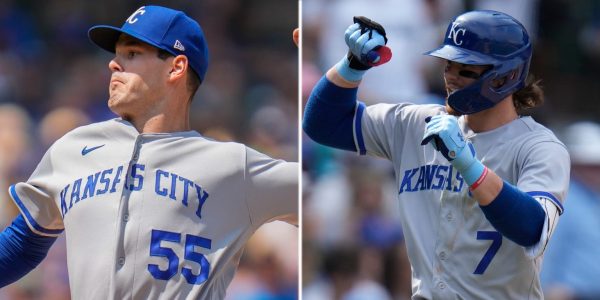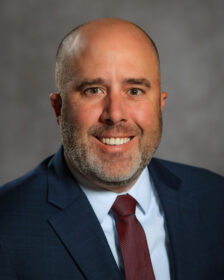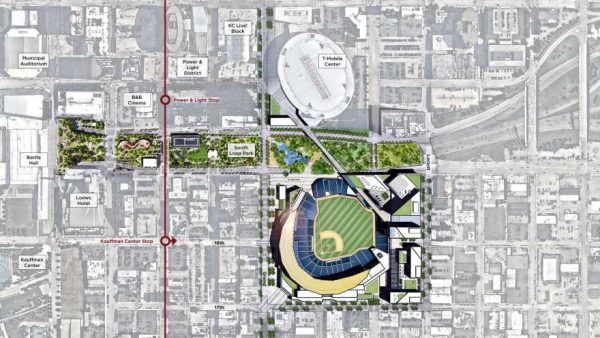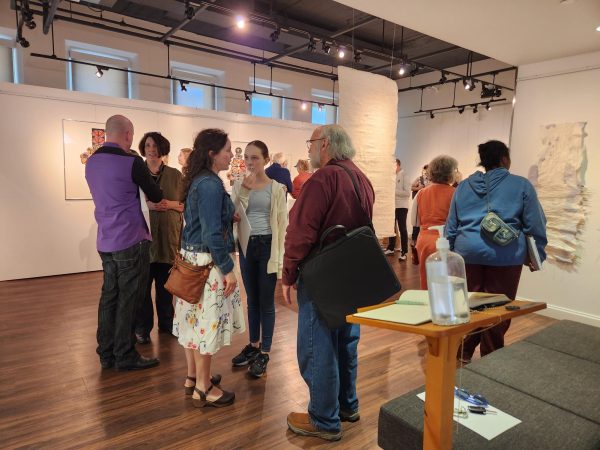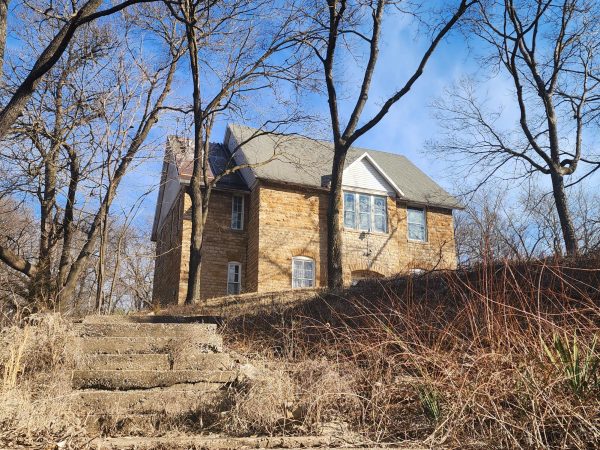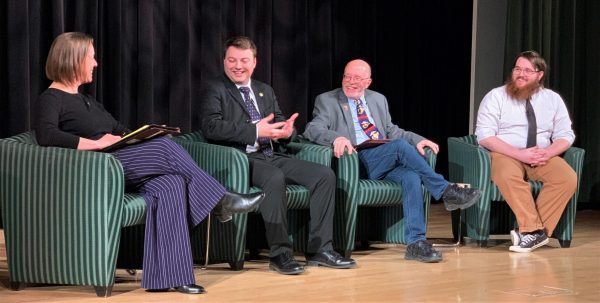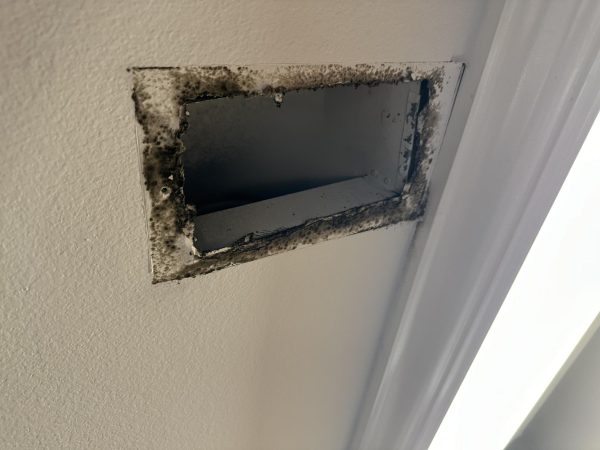Park stands with Jamal
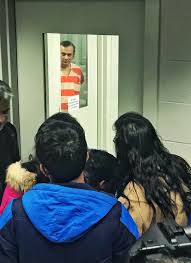
Last weekend, Park University adjunct professor Syed Ahmed Jamal glimpsed his family through a detention center window. According to the Facebook page of Jamal’s legal representation, Sharma-Crawford Attorney-at-Law, this was only possible after an hour of negotiation, allowing his lawyer to visit him in the room closest to his family, which had a window.
“Even though we called three times prior to that to ensure we could make this happen, no one ever told us they had to be there 30 minutes prior,” said the firm’s Facebook page. “While they were thankful for the visual, the disappointment of being that close with no verbal or physical contact was heartbreaking. We find it appalling that criminal defendants get multiple opportunities throughout the week to visit with family, but Syed, who is not criminal, and being held on a civil violation is allowed one visit a week. So, now the family must wait.”
Jamal had been teaching chemistry at Park University before he was arrested by Immigration and Customs Enforcement. On Jan. 24, ICE agents handcuffed Jamal on the front lawn of his Lawrence, Kan., home while he prepared his children for school. According to the Washington Post, ICE agents said Jamal had overstayed his visa twice and violated a 2011 order to leave the country. An initial claim that Jamal had been arrested for a misdemeanor in 2012 was later rescinded when ICE could not confirm the charge.
“He was employed as an adjunct faculty member teaching a course,” said Park University President Greg Gunderson, Ph.D. “When he was collected by the ICE, he was unable to teach so we had to bring in a replacement instructor. My hope is when this settles he can return in an adjunct capacity and continue to teach for us.”
Since Jamal’s arrest in January, his community in Lawrence and across the Kansas City area have organized letter writing campaigns, and raised money through Go-Fund Me to assist with legal fees and to support his family during this crisis.
“We’ve tried to, within the confines of the law as we understand it, express our hope for leniency,” said Dr. Gunderson. “We’ve been blessed to have the congressional delegation, such as representative Cleaver, who’ve taken intense interest in the case. We’ve been coordinating to offer our support. As we become aware of more we will certainly do it.”
“I know there are going to be people who disagree with our support of Jamal, and I have received notes,” Dr. Gunderson said. “I would say, if there was a common concern it’s ‘Why did Park hire an illegal alien?’ And it is a basic misconception. While he wasn’t here under a valid visa, he was as a legal resident of our country, and he had permission to work. As late as January, 2018, through the federal government’s E-verify system, we had confirmed that he had a social security number and a valid work permit. He could work. A lot of people make assumptions that simply aren’t true. My hope is everyone on this issue, whether you agree with our position or not, will take this opportunity to become more informed to understand this is an incredibly complex issue. It’s not that a lot of these people that are being impacted intended to end up in this situation. I think a number of people do their best to comply with the rules, but the rules sometimes are confusing and are changing. I think the amount of attention his case has gotten in the press is really leading to that conversation in Kansas City and even nationally, as to how these deportations can really transform a community, not just the individual.”
Some complications faced by immigrants in the United States are detailed in Jamal’s “Immigration Timeline,” laid out by KCUR Health Editor, Dan Margolies.
It covers back to 1987, but in the last month, Jamal first had a stay of removal issued by Judge Glen Baker, which was later dissolved due to questions of jurisdiction. The Board of Immigration Appeals ordered their own stay while carrying out a review, according to the timeline. The second stay was issued after Jamal was already in the air, bound for Bangladesh. He was removed from the flight when it stopped to refuel in Hawaii, the Associated Press reported.
“I think we have to always be cognizant that we don’t fully understand the law,” said Dr. Gunderson. “When we’re not experts in the law in question, we’re asking for leniency, which is within the law. Justice is truly not blind, it’s truly able to balance out multiple interests. We hope that it does in this instance. I think all of that reflects our desire when we talk about being a family as an institution. When we have a family member that faces a challenge we want to be supportive.” This particular challenge comes at an interesting time.
This year, is the 75th anniversary of what’s become known as the “Battle of Parkville.” The Nisei students were Japanese children born in America, nine of whom attended Park College when between 110,000-120,000 people of Japanese ancestry were interned during World War II. Associate professor of history Timothy Westcott, Ph.D., spearheaded a display about the incident that can be viewed in the underground outside the Park Academic Plaza.
“It’s interesting because the state that had the largest Japanese American population was Hawaii but there was no relocation from the island that actually was bombed,” said Westcott. In creating the exhibit, Westcott pored through more than 1,300 documents in the Fishburn archives.
“If you go down there you’ll see some of the postcards,” he said. “We have hundreds of postcards from alumni in support. There are a few that did not support, but you can see the number who did, with full understanding that the financial risk to the college could’ve been very great. The community did not support this action. Accepting people with an ancestral connection with a nation that just bombed us; we, this small Presbyterian college in the middle of nowhere, are willing to risk all that,” said Westcott.
“It was incredibly controversial, and the university received considerable negative attention as a result,” Dr. Gunderson said of the incident. “But it was the right thing to do and time has proven it to be right. As I look at our history, I’m committed that we remain on the side of history that’s right. Park believes one of the greatest transformative powers we can provide the world is an American western education. It transforms. It creates democracy and stability where they don’t exist. That’s something that’s been in our DNA for 142 years.”
Losing a person to deportation can transform a community beyond the loss of an individual. Inversely, including of a perceived outsider can change a group beyond the sum benefit of that individual.
“We believe having international students on our campus enhances the education experience of everyone,” said Dr. Gunderson. “We not only change and transform them through their education, they change and transform their countries and they change and transform us.”
This exponential value of cooperation is Dr. Gunderson’s justification for supporting Jamal, as well as international students.
“If we have a student who, because of visa rules is unable to return to the U.S.,” said Dr. Gunderson, “we will provide them their education online until they finish their degree, or we will make arrangements to have them attend a school in Europe that is American-based so they’ll be able to still achieve their dream of an American degree. We would pay the difference between the tuition that they currently pay at our institution and what would be required to pay to finish their degrees. There is nothing that would ever stop us from delivering our commitment of an American education to our international students. We will stand by that no matter how things progress. There’s nothing in that desire that is challenging the law or changes to the law, we’re just putting our stake in the sand as far as what we will do regardless of any changes in visa regulations. Our students are ours.”
This belief proved correct for Park in one very literal way. In the corner of the Nisei exhibit sits a letter from William Yamamoto, Ph.D. He was one of the nine Nisei students who attended Park.
“In the 90’s, every surviving interned person received a reparations check from the United States government,” said Westcott. “He donated half of that check to Park College.”
“I was declared a stranger in my own land and you took me in,” begins the letter.
“There’s no way to necessarily remove those events of 75 years ago from events that were occurring in the spring and fall last year,” said Westcott in reference to the executive-order travel bans and the suspension of DACA.
“And now this,” he added in reference to Jamal’s detainment.
“The family has probably changed, somewhat. The heart of all that hasn’t. We accept who we accept. We can look at that as race, gender, ethnicity, sexual orientation, all those things,” said Westcott.
“I think that’s what the ultimate story of the Nisei students was,” said Dr. Gunderson. “We created artificial boundaries that divided a population and said the American experience didn’t belong to them.”
If the parallels of these events are still not apparent, please consider these words from William Lindsay Young, Ph.D., Park president from 1937-1943.
“Park College opens the present school year under extremely abnormal circumstances,” he said in 1942. “The world is on fire. The flames of hatred engulf the entire human race. War breeds hysteria and makes for emotional instability. Feelings become intensified and sound judgement is difficult to exercise. If we are not careful in our anxiety over the issues involved, we are apt to do damage to those very values which we are now anxious to preserve. So let us resolve to be good Americans, loyal Americans, intelligent Americans. Let us resolve that we will not weaken our nation by cheap slanderous remarks about those in our midst with whom we disagree. We are Americans, all. Let us prove to the world that while emotions surge around us like a billowy sea, while tides of hatred tend to render rational processes almost impossible, we will strive with the help of God to demonstrate democracy at its best on this hillside.”
Your donation will support the student journalists of Park University. Your contribution will allow us to cover our annual website hosting costs, freeing up other funds for equipment, printing and training.


